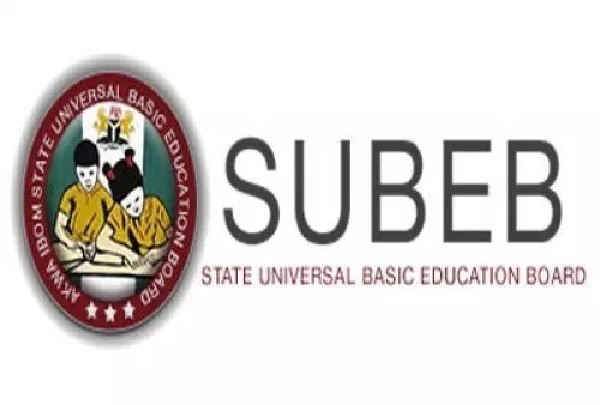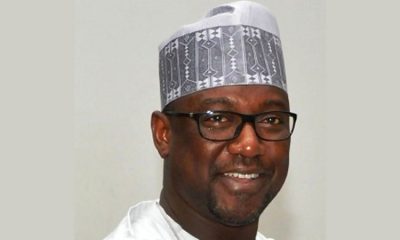Education
Kaduna Gathers 2,000 Stakeholders for School Enrollment Campaign

The Kaduna State Universal Basic Education Board (SUBEB) on Thursday 22nd August, 2018 gathered 2,000 education stakeholders as part of activities to kick start the 2019 enrollment campaign.
The board’s acting Director, Social Mobilisation, Malam Ibrahim Aminu, told News Agency of Nigeria (NAN) in Kaduna that the campaign targets the enrollment of 727,764 out-of-school children in the state in five years.
Aminu explained that the campaign, which target the enrollment of 145,000 pupils in 2019, would be carried out under the World Bank assisted Better Education Service Delivery for All (BESDA).
He explained that the 2,000 stakeholders, who would serve as enrollment influencers would be trained to carry out community-based and house-to-house sensitisation campaign on the need to send children to school.
He said that the stakeholders comprised of traditional leaders, Civil Society Organisations, Faith-Based Organisations, youths and women groups, Community-Based Organisations, community members, social mobilisation officers and Local Government Chairmen.
“Others are School-Based Management Committees (SBMCs), Parent Teacher Association, legal officers, Education Marshals, vigilantes, Local Government Education Secretaries, social welfare officers, as well as education and social development officers,” he said.
He disclosed that the board had held a strategic meeting with Master Trainers, who would train the 2,000 influencers in six centres across the three Senatorial Districts on the enrollment campaign modalities.
He added that the 2,000 influencers would be expected to mobilise community leaders and SBMC Chairmen of 4,260 primary schools in the state and conduct community forum on enrollment.
“The 727,764 out-of-school children in the state militate against the realisation of the full potentials of children in the state.
“This is a huge threat to the attainment of goal four of the Sustainable Development Goals (SDGs).
“The community-based and house-to-house enlightenment campaign is to influence change of attitudes and behaviour among parents and community members toward the education of their children, especially the girl-child.
“It is also designed to sensitise the general public on the availability of free basic education in the state and the consequences of not sending a child to school,” he added.
The director recalled that the Federal Government had in 2018 secured a 611 million dollars World Bank grant for the BESDA programme in 17 states with highest number of out-of-school children.
He identified the states as Adamawa, Bauchi, Borno, Gombe, Taraba, Yobe, Jigawa, Kaduna, Kano, Katsina, Kebbi, Sokoto, Zamfara, Niger, Ebonyi, Rivers and Oyo.
He said that the Kaduna State Government had already received three million dollars to commence implementation of the programme.
According to him, the programme is to support Universal Basic Education Commission in addressing Pillar One of the Ministerial Strategic Plan that seeks to address the problem of out-of-school children in the country.
“The specific objective of the programme is to increase equitable access to education for out-of-school children, improve literacy in focus states and strengthen accountability for results through system strengthening.
“578 million dollars out of the 611 million dollars will be expended on Programme for Result, while 33 million dollars will be spent on Technical Assistance.
“This means that the bulk of the fund will be disbursed to the benefiting states based on the number of out-of-school children they were able to enroll in school by gender.” (NAN)
Education
How female Medicine Degree Holder Abandoned Certificate for Carpentry- Bugaje

The Executive Secretary, National Board for Technical Education (NBTE), Prof. Idris Bugaje has expressed the need to promote inclusivity, especially for women and persons with disabilities in technical education.
Bugaje stated this in Abuja while assessing the impact of President Bola Tinubu’s administration after two years in office.
He appealed for greater gender inclusivity in vocational and technical education, stressing that deliberate policies such as scholarships and incentives could help bridge the gender gap.
In support of his position, Bugaje shared an inspiring story of a female medical doctor who abandoned her medical career to pursue carpentry.
“There is a story I want to share with you, about a girl who was interested in becoming a carpenter.
“The father was a carpenter and they were four children in the family, three boys and herself.
“Whenever she joined the boys to the workshop, the father would send her away, saying, `you are a girl, go back to the house, you are not supposed to be a carpenter’’.
“Without giving considerations to the passion of the young girl, the father sent her to a medical school.
“She graduated with the MBBS, went and did the one-year internship after graduation, and chose a role as a medical doctor.
“After that, she came back to the father, returned the MBBS certificate to him, and thanked him.
“Afterward, she told the father that her passion is in carpentry, not to practice as medical doctor,” Bugaje narrated
He added that after spending seven years on medical training, the father had no option but to send her to Turkey to learn how to make furniture.
Addressing cultural and societal barriers often faced by young women in technical fields, Bugaje appealed to parents to support their daughters’ interests in trades like plumbing, electrical installation, and carpentry.
He also called on policymakers to prioritise passion and skill development among youth, especially girls, noting that such encouragement could lead to greater innovation and self-reliance.
“If they want to become carpenters, ICT experts, or POP artists, allow them.
“In skills’ training, passion is very important. That’s what motivates children and helps them innovate.
“We need to harness these innovations if the country is to move forward and rise beyond being a third-world nation,” he said.
He emphasized the need to have deliberate policies to encourage women to come into TVET through scholarships and other incentives. (NAN)
Education
WAEC Apologies for Conducting English Exam Late, Cites Leakage Prevention

The West African Examinations Council (WAEC) has apologized for delay in conducting English Language Paper 2 in the ongoing 2025 West African Senior School Certificate Examination (WASSCE).
The took place on Wednesday evening.
In a statement by Moyosola Adesina, Acting Head of Public Affairs Department of
WAEC, the council said that it encountered challenges.
”While maintaining the integrity and security of our examination, we faced considerable challenges primarily due to our major aim of preventing leakage of any paper.
“We recognise the importance of timely conduct of examinations and the impact of this decision on candidates, their schools and parents, and we sincerely apologise for any inconveniences caused,” WAEC stated.
It said that it successfully achieved its objective but it inadvertently impacted the timeliness and seamless conduct of the examination.
“In spite of our best efforts, we encountered logistical hurdles, security concerns and socio-cultural factors that negatively influenced our operations,” WAEC said.
The council re-affirmed its commitment to upholding the highest standard in examination conduct, and pledged to continue to promote academic excellence. (NAN)
Education
FG vows full WAEC CBT shift by 2026 – Minister

The Minister of Education, Dr Tunji Alausa, has reaffirmed the Federal Government’s commitment to fully transitioning to Computer-Based Test (CBT) examinations for the West African Examinations Council (WAEC) and other exam bodies by 2026.
Dr Alausa made this known while monitoring the conduct of WAEC’s CBT examinations in Abuja on Wednesday.
He expressed optimism about Nigeria’s capacity to modernise its examination system and reduce widespread malpractice through digital innovation.
Commending WAEC’s initiative, the minister described the shift from traditional pen-and-paper exams to CBT as a historic and crucial step toward fairness and educational integrity.
“We are working very hard to eliminate fraud in our exam system, and WAEC is taking the lead,” he said.
Highlighting the advantages of CBT, Alausa noted that the system simplified the exam process while significantly curbing cheating.
“We now have clear evidence that when exams are done using technology, the level of fraud is minimised to almost zero,” he stated.
He further lauded WAEC’s internal safeguards, explaining that the CBT system was operated via a secured Local Area Network (LAN), making it “literally impossible” to hack.
According to the minister, by Nov. 2025, all WAEC multiple-choice exams will be conducted using CBT.
He added that essay questions and NECO examinations would follow suit by 2026.
On infrastructure and logistics, particularly in remote areas, Alausa acknowledged the challenges but assured that scalable solutions are in progress.
“Are we going to be ready to provide every single needed infrastructure by November? Absolutely not.
“But as we move into the future, we will be ready. We have to challenge ourselves as government,” he said.
He also addressed concerns over the logistics of conducting multiple exams.
“In WAEC, the average student takes about eight to nine papers.
“They do it over several days. Those are the logistics we, as administrators, have to work through, and we already are,” he explained.
The ongoing WAEC exams, which began on April 24, are scheduled to conclude on June 20, 2025.
A total of 1,973,253 candidates from 23,554 schools are participating. Of this number, 979,228 candidates are male, accounting for 49.63 per cent, while 994,025 candidates are female, making up 50.37 per cent.(NAN)
























